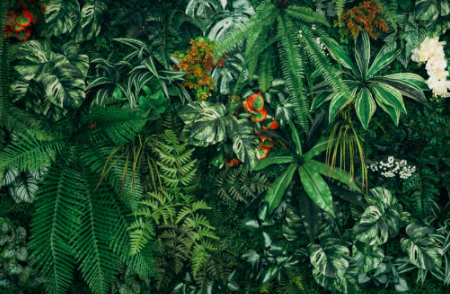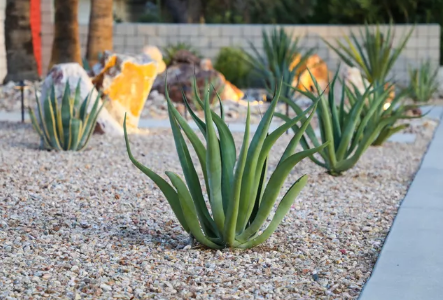Spiky plants can instantly give your garden a lush, tropical vacation vibe. With their sleek lines and striking forms, they make excellent focal points or border plants, adding structure and definition to any flower bed.
These plants include succulents, grasses, and cacti, many of which thrive in a wide range of USDA hardiness zones. That means you can enjoy their dramatic look no matter where you live. Plus, thanks to their spiny nature, many of them are deer-resistant.
Here are 10 eye-catching spiky plants to incorporate into your landscape—whether you live in a year-round warm climate or need cold-hardy options:
1. Krantz Aloe
Krantz aloe features sharp, pointed leaves and vibrant red and orange flowers that bloom in winter, making it both beautiful and attention-grabbing. The leaves grow in rosettes along the trunk, giving the plant a striking appearance. This aloe thrives in full sun and is highly drought-tolerant.
2. New Zealand Flax
New Zealand flax shoots out sword-shaped leaves from its base like rays of light. This bold plant is especially eye-catching when planted in groups. While green is most common, some varieties come in yellow, pink, red, or bronze tones. It also produces tubular red or yellow flowers that attract pollinators, including hummingbirds.
3. Agave
Agave plants feature large, sharp leaves that make a dramatic statement in any garden. Some varieties are cold-hardy. A single agave can serve as a bold centerpiece surrounded by groundcovers. These plants thrive in sunny, rocky, well-draining soil. Depending on the type, some agaves can grow up to 10 feet tall. Eventually, the plant will bloom and then die—but it’s often replaced by a pup that grows in its place.

4. Yucca
Yucca has a tropical appearance, but many varieties can survive temperatures as low as -10°F. They bloom with white or pink flowers in summer and fall, especially when grown outdoors with the right mix of sun and shade. Their sharp leaves can be dangerous, so keep children and pets away. Also, be aware that their roots spread quickly and may damage foundations or sidewalks if not properly managed.
5. European Fan Palm
This palm offers tropical flair with a spiky edge, but it’s also cold-hardy—tolerating temperatures down to 10°F. You can grow it as a single-trunk tree for a classic look or with multiple trunks for a shrubbier shape. In spring, it produces small yellow flowers followed by fruit.
6. Cactus
Cacti are easily recognized by their flat, round pads covered in spines. In early summer, they bloom with colorful, showy flowers. Though commonly associated with desert landscapes, many varieties are surprisingly cold-tolerant. Just make sure they get plenty of sun and avoid overwatering to prevent root rot.
7. Sea Holly
Sea holly has a more delicate spiky structure, with angular stems topped by metallic blue-violet flowers. These thistle-like blooms give off a cottage garden charm. Sea holly is a perennial that self-seeds, returning year after year with little maintenance.
8. Ti Plant
The Ti plant doesn’t just have pointed leaves—it also boasts a stunning leathery texture. Its bold colors go far beyond basic green, ranging from red and yellow to purple and even white. In warm climates, it grows as a perennial, but in cooler regions, you can grow it as an annual. Use it as an architectural highlight and give it plenty of space to show off its dramatic foliage.

9. Palm Trees
If you love the look of a spiky palm but don’t live in a tropical zone, try the Windmill Palm. This cold-hardy palm can withstand temperatures as low as 10°F. When small, its sharp fronds add interest and texture to garden beds or entryways.
10. Blue Fescue
Blue fescue is a spiky ornamental grass with fine-textured, silver-blue tufts that pop out of the ground like fireworks. Its unique texture and color make it a favorite for edging garden beds. This fast-growing perennial regrows each year and is perfect for adding color and dimension to your landscape.
Whether you’re going for a bold, desert-inspired vibe or simply want to spice up your flower beds with a little drama, spiky plants can add eye-catching texture, structure, and personality to your garden—all while being easy to care for and naturally deer-resistant.

